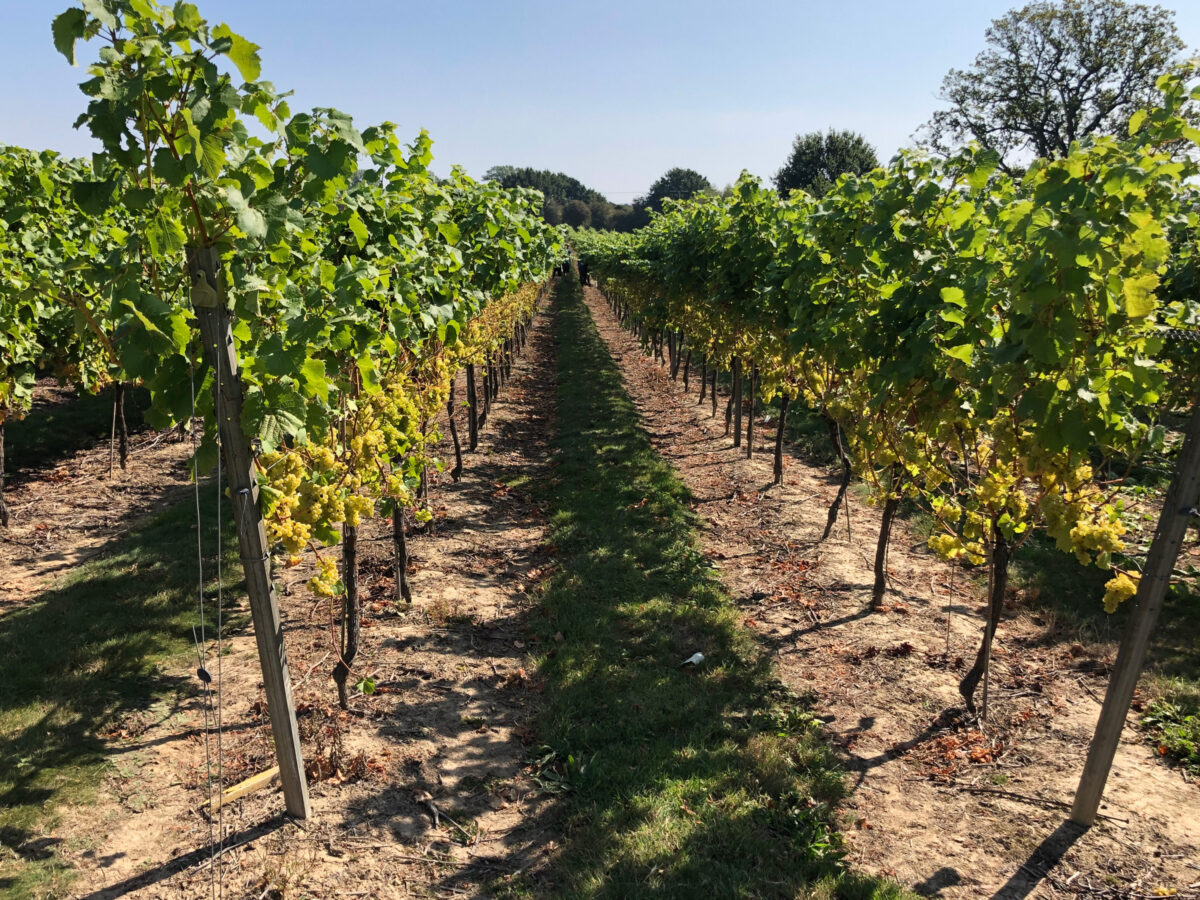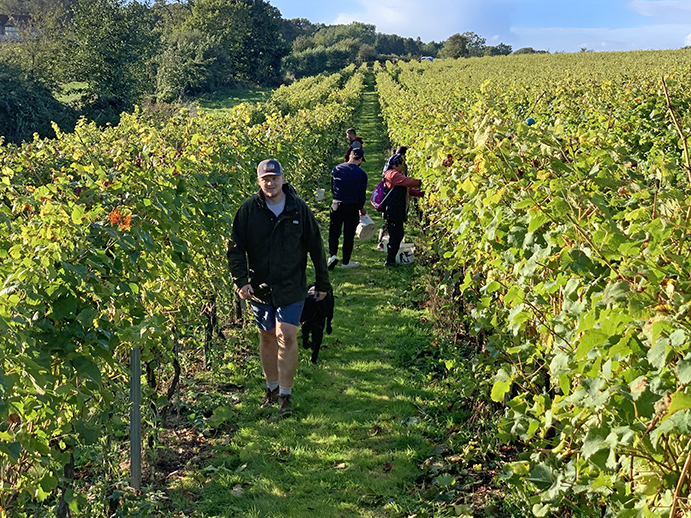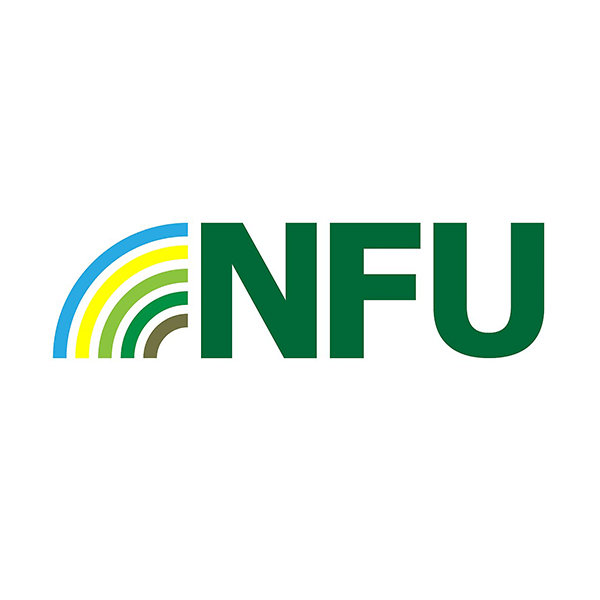Viticulture in the South East of England is on a huge increase in popularity. Something of a fringe, niche or ‘out there’ crop when it first appeared commercially in the UK in the 70’s and 80’s, now it is big business.
So the story goes, that the recent rises in popularity are due to the combination of climate changing more in favour of warmer conducive conditions to ripening a commercial sized crop, along with the much coveted band of chalk that the south east of England shares with the Champagne region of France.

These make for wonderful marketing stories, but actually we feel that the scale of the industry’s recent boom is probably more to do with a bandwagon of wealthy individuals or investors who can see the commercial and retail opportunity for grabbing market share of the British consumers thirst for sparkling wine.
Our Grapes
We operate a slightly different business model here and see that we are primarily farmers. Sticking to what we know and do best we intend to leave the branding, marketing and sales of bottles to the experts. We now proudly supply grapes for three prominent wineries in the industry: Ridgeview, Chapel Down and MDCV UK.



We grow grapes on the fields that we believe they are most suited, to us this is just another crop and a vital part of our business. However crucially the contracts that we hold with the wineries are long term and secure, this security is a luxury that we do not receive in the sale of most of the farm’s other outputs. Grapes offer us an element of risk spreading across the rest of our business profile, which we view as crucial to the future, long-term standing of the business in a post-EU era.
We have 50 acres of grapes, planted between 2011 and 2019. The mixture of ages of the plantings have allowed us to adapt and learn about the crop, find out how we want to set up our growing systems and scale up the labour over time. It takes about 3 years to get an appreciable yield of grapes. We have spread the risk again with 3 different varieties, Bacchus (a still wine grape) and Pinot Noir/Chardonnay who are primarily sparkling varieties.
Our ‘Terrior’
Terroir is a French word that we use over here too, to describe the general characteristics of the vineyard that give the grapes and consequently the wine its unique flavours and qualities. Its one of those wonderful words that encompasses a big (kind of loose) definition and one that we haven’t yet got an appropriate English translation for.
Our Terroir is as much about our attitude to the farming and the care and attention that we put into providing a good yield of high quality grapes for our wineries as it is about the soil and climate in our vineyards. We don’t benefit from the famous chalk, but actually that doesn’t bother us! Our clay soils (yes clay!) have a bedrock of sandstone which, (once the roots have made it through the topsoil) allow for enough natural drainage and eventually the conditions that grapes enjoy. The clay topsoil does hold water and nutrients that shallow chalk soils wouldn’t at times, this gives our vines a sometimes challenging vigour, but the ability to grow high yields of densely flavoured grapes.
Another characteristic of chalk in the South East of England is that it is often at higher altitudes in the North and South Downs, this makes generally for a cooler microclimate and often the risk of frost at bud burst and delayed ripening. Our low-lying vineyards stretch almost to the sea level of the Romney Marsh, offering any cold late spring air to sink freely onto the marsh away from the vines and also a warmth not only from the altitude but also the proximity to the maritime climate of the Rye Bay, the coast in view from the fields on a clear day. This all adds up to a terroir that we are certainly happy with now that we have seen several harvests.
In the future we would love to see our Terroir recognised by a winery who wants to label their wine as from a single source… us! A pipe dream that hopefully we can achieve at some stage when our vines have maturity.




